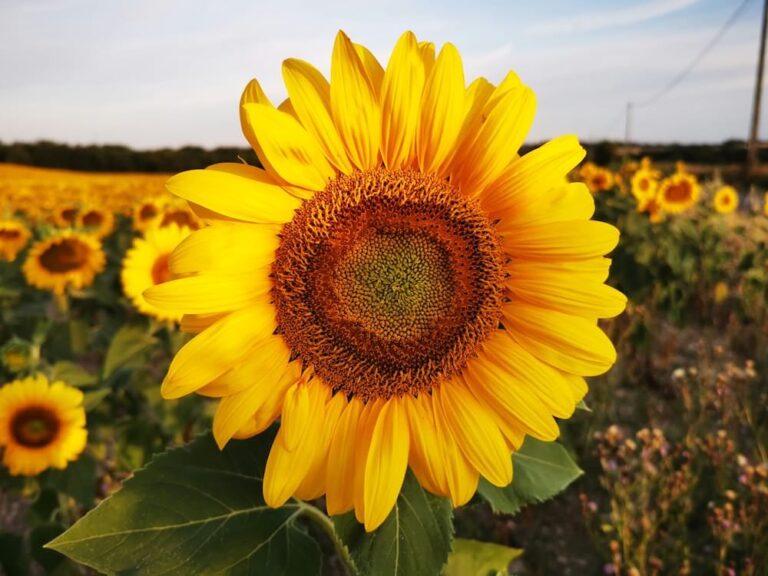weather
Weather is a common topic in daily conversation, and French offers a wide range of vocabulary and expressions to talk about it. Some use the phrase il fait, while others use verbs such as pleuvoir (to rain), neiger (to snow), or geler (to freeze). Many weather expressions are impersonal, using il as the subject.
Basic weather expressions with “il fait”
The expression il fait is used to describe the general feel or temperature of the weather.
- il fait chaud (it is hot)
- il fait froid (it is cold)
- il fait frais (it is cool)
- il fait doux (it is mild)
- il fait humide (it is humid)
- il fait sec (it is dry)
- il faisait très froid hier matin (it was very cold yesterday morning)
- en été, il fait souvent chaud à Marseille (in summer, it is often hot in Marseille)
- il faisait bon ce jour-là (the weather was pleasant that day)
- il fera plus frais demain (it will be cooler tomorrow)
Talking about the sun, wind and clouds
- il y a du soleil (it is sunny)
- il y avait du vent hier soir (it was windy yesterday evening)
- il y aura des nuages dans l’après-midi (there will be clouds in the afternoon)
- il y a de la brume sur la route (there is mist on the road)
- il y avait un brouillard épais ce matin (there was thick fog this morning)
- le vent souffle très fort aujourd’hui (the wind is blowing very strongly today)
- le ciel est couvert (the sky is overcast)
- le soleil brille (the sun is shining)
Rain, snow and other precipitation
Some weather verbs are used without il fait. These include:
- pleuvoir (to rain)
- neiger (to snow)
- geler (to freeze)
- grêler (to hail)
Examples:
- il pleut depuis ce matin (it has been raining since this morning)
- il a beaucoup plu pendant la nuit (it rained a lot during the night)
- s’il pleuvait, on resterait à la maison (if it rained, we would stay home)
- il neige rarement dans cette région (it rarely snows in this region)
- il a neigé tout l’après-midi (it snowed all afternoon)
- il gèle dehors (it is freezing outside)
- il a gelé la nuit dernière (it froze last night)
- il grêle souvent au printemps ici (it often hails in spring here)
Other expressions
- il y a du verglas sur la route (there is black ice on the road)
- il y avait du givre sur les vitres ce matin (there was frost on the windows this morning)
- il tombe de la neige fondue (sleet is falling)
- la température baisse rapidement (the temperature is dropping quickly)
- la météo annonce des averses pour demain (the weather forecast is predicting showers for tomorrow)
- on attend une vague de chaleur cette semaine (a heatwave is expected this week)
Describing weather in other tenses
- il faisait très chaud quand nous sommes arrivés (it was very hot when we arrived)
- il neigeait quand je suis sorti de la maison (it was snowing when I left the house)
- s’il fait beau demain, on ira à la plage (if the weather is nice tomorrow, we will go to the beach)
- s’il avait plu, on aurait annulé le pique-nique (if it had rained, we would have cancelled the picnic)
- il ferait froid en montagne même en été (it can be cold in the mountains even in summer)
Useful nouns and adjectives
- le temps (weather in general)
- la météo (weather [forecast])
- les prévisions météo (weather forecast)
- la chaleur (heat)
- le froid (cold)
- la pluie (rain)
- la neige (snow)
- le vent (wind)
- le brouillard (fog)
- le verglas (black ice)
- le givre (frost)
- ensoleillé (sunny)
- nuageux (cloudy)
- pluvieux (rainy)
- glacial (freezing)
- brumeux (misty)
- orageux (stormy)
Examples:
- la journée était ensoleillée mais fraîche (the day was sunny but cool)
- nous avons eu un hiver très pluvieux (we had a very rainy winter)
- les routes sont dangereuses à cause du verglas (the roads are dangerous because of black ice)
- le ciel est orageux, il va peut-être pleuvoir (the sky is stormy, it may rain)






